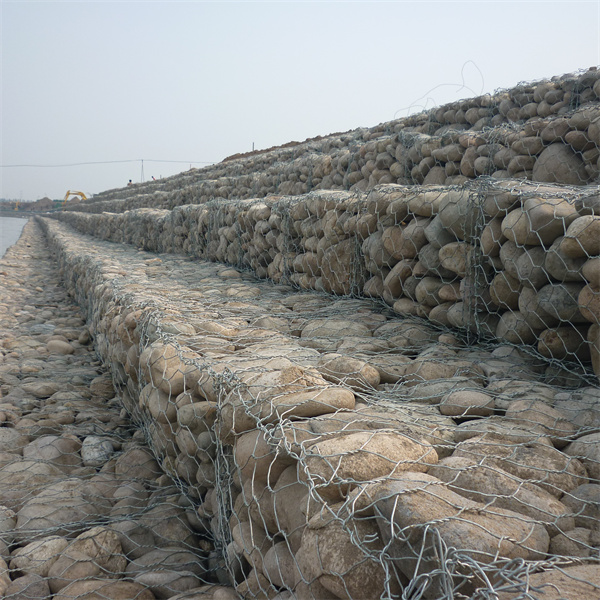Nov . 27, 2024 23:54 Back to list
Cost of Gabion Stones per Ton from Factories and Suppliers
Understanding Gabion Stone Prices and Their Impact on Construction Projects
Gabion stones, often used in construction and landscaping, play a crucial role in environmental management, erosion control, and architectural aesthetics. As the demand for eco-friendly construction solutions grows, understanding the pricing of gabion stones becomes essential for contractors and project managers. This article delves into various factors that influence gabion stone prices per ton, the different types of stones available, and how to effectively source them from factories.
What are Gabion Stones?
Gabion stones are large stones or aggregate materials used to fill wire baskets or cages, known as gabions. These structures are commonly employed in civil engineering projects for stabilizing slopes, building retaining walls, and creating flood defenses. They can also serve decorative purposes in landscaping, enhancing garden aesthetics and functionality.
Factors Influencing Gabion Stone Prices
1. Quality and Type of Stone The price of gabion stones largely depends on the quality and type of material used. Common types include granite, limestone, river rock, and concrete. Each type has its unique properties and costs associated with extraction and transportation. For instance, granite tends to be more durable and expensive compared to limestone.
2. Size and Gradation Gabion stones come in various sizes, usually ranging from 4 to 8 inches in diameter. The size impacts the overall weight of the stone and potentially its cost. Smaller stones might be less expensive but can require more material to achieve the same volume and stability compared to larger stones.
3. Transportation and Location The cost of transporting gabion stones from factories to the job site can significantly add to the overall price per ton. Factors such as proximity to the supplier, local infrastructure, and transportation methods play a vital role in determining final costs. If stones are sourced from a factory far away, transportation fees can inflate prices considerably.
4. Market Demand Like any commodity, the prices of gabion stones are influenced by supply and demand dynamics. In periods of high demand, such as after natural disasters or during construction booms, prices may rise. Conversely, during off-peak times, prices may stabilize or decrease.
5. Local Regulations and Environmental Factors Some regions have strict regulations governing the extraction and sale of natural stones. Compliance with these regulations may increase costs, which are then reflected in the final pricing of gabion stones.
gabion stone price per ton factories

Sourcing Gabion Stones from Factories
Finding the right factory to source gabion stones at an optimal price is crucial for budget management in construction projects. Here are some steps to help in the sourcing process
1. Research Local Suppliers Start by identifying local quarries and suppliers known for producing high-quality gabion stones. This not only reduces transportation costs but also supports local businesses.
2. Request Quotes Contact multiple suppliers to obtain quotes. Make sure to detail the specifications you require for your project, including the type of stone, size, and quantity needed.
3. Compare Prices and Services When comparing quotes, consider not just the price but also the quality of service, delivery options, and payment terms. Sometimes, a slightly higher price can come with better customer service or more reliable delivery schedules.
4. Evaluate Quality If possible, visit the factory or quarry to inspect the quality of the stones before purchasing. Ensuring compliance with industry standards can prevent costly mistakes down the line.
5. Consider Volume Discounts For large projects, negotiating for bulk pricing can lead to significant savings. Factories often provide discounts for large orders, making it more affordable to source gabion stones.
Conclusion
Understanding gabion stone prices per ton is essential for anyone involved in construction or landscaping projects. By considering factors such as type, size, transportation costs, and market demand, project managers can make informed decisions that keep their budgets in check. Sourcing from reliable factories not only ensures quality but also helps in maintaining financial efficiency. Ultimately, gabion stones represent an environmentally friendly option that contributes to sustainable construction practices, making them a worthwhile investment for any project.
-
Installation Tips for Gabion Wire Baskets in Erosion Control Projects
NewsJul.21,2025
-
High-Quality Gabion Basket Barriers for Retaining Wall Systems
NewsJul.21,2025
-
Gabion Welded Wire Mesh Applications in Flood Prevention Systems
NewsJul.21,2025
-
Designing Aesthetic Gabion Wall River Bank
NewsJul.21,2025
-
Creative Garden Gabion Baskets Designs Blending Form and Function
NewsJul.21,2025
-
Cost-Effective Gabion Mesh Panels
NewsJul.21,2025
-
Understanding Load-Bearing Capacity of Gabion Boxes
NewsJul.17,2025






